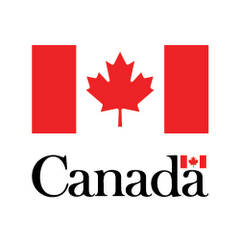Photo: Facebook Page of Environment Canada
TORONTO – The calendar may say it’s spring on Thursday, but Canadians hoping to feel the effects of a new season will either have to head west or hold their breath.
British Columbia has been basking in balmy breezes and savouring sunny skies for the past several weeks while the rest of the country shivers its way through the coldest winter Environment Canada has documented in 35 years.
Unfortunately, with ice still blanketing the Great Lakes and snow piled high over much of the country, weather watchers predict the shivering will continue for weeks to come.
Environment Canada meteorologist Matt MacDonald said the tale of two winters has been caused by a phenomenon known as a polar vortex — a body of cold air that created a sharp division in the jet stream and formed distinct temperature zones within the country.
“We’ve had this huge pool of cold air sitting over the eastern half of the country, and really we haven’t seen much reprieve from it since December,” MacDonald said in a telephone interview from Vancouver.
“The trough in the jet stream kind of began flexing its muscles the beginning of January and really hasn’t let off since then.”
For provinces located under the polar vortex, namely Saskatchewan and all points east, life has been marked by the sort of frigid temperatures and massive snowfalls that haven’t been seen in decades.
MacDonald said national average temperatures are the lowest on record since the winter of 1978-79, adding parts of northwestern Ontario hit lows that haven’t been documented since 1938.
These extreme temperatures created historic conditions on the Great Lakes, MacDonald said, adding spring is breaking over bodies of water that are still 92 per cent covered in ice.
The winter saw Atlantic and Central Canada battling crippling ice storms and digging their way out of snowfalls that MacDonald said were 20 to 30 per cent higher than seasonal norms.
The pesky polar vortex was to blame in all cases, he said, adding the cold air that hovered over the region forced weather systems to alter their usual routes through the atmosphere.
“What this polar vortex has done, it’s shifted the cold air down from the Arctic over Ontario and Quebec, but it’s also shifted the storm track further south,” he said.
Most of Canada’s loss was the rest of the country’s gain, MacDonald said, adding northern regions of the country usually gripped by arctic temperatures enjoyed a warmer than usual winter.
The same applied to British Columbia, which shook off an early cold spell and relished an unusually mild, dry season, he said.
Life outside the polar vortex was almost literal sunshine and roses for Gloria Davies of Vancouver, who tailored her afternoon activities to make the most of the glorious conditions.
“On the way home I stopped for my wonderful lunch on the patio in the sunshine…and slowly wandered home amongst the cherry blossoms,” Davies said of one recent day on the town.
For those stuck under the polar vortex, life looked quite different.
“It sucks. It’s just been so long and so frustrating and just sort of depressing,” said Carrie Bibik of Winnipeg. “You just want to crawl into a hole and never come out.”
Mark Rose of Halifax, a gas station attendant grown weary of hearing people gripe about the cold, quipped that spring may not arrive until July.
Others, however, saw the brisk conditions as a welcome return to form for a country renowned for its wintry weather.
“It’s about time we had real winters now,” said Alex Cole of Toronto. “As a child I remember the winters being so much worse. They used to start in November, but over the years it’s just gotten a lot milder and so I think we’ve become too soft now.”
MacDonald said those hoping Mother Nature will sync her calendar with Thursday’s official start of spring are in for some disappointment.
The Great Lakes ice coverage and extensive snow pack across much of the country ensures that all passing weather systems will remain cold and dry for the foreseeable future, he said.
Looking out into the next few weeks here, I’m not seeing any indication of spring starting,” he said. “We’re stuck with all the snow on the ground, all the ice on the lakes, and really a cold atmosphere. It’s been a long, rough winter, and I would recommend that people keep their shovels and their parkas out.”
It’s advice Cole already planned to heed, adding she’s accustomed to seeing snow on the ground well past when the calendar says it should be there.
“I don’t really trust that spring is coming until the end of April,” she said.
— With files from Vivian Luk in Vancouver, Paola Loriggio in Toronto, Chinta Puxley in Winnipeg and Aly Thomson in Halifax
